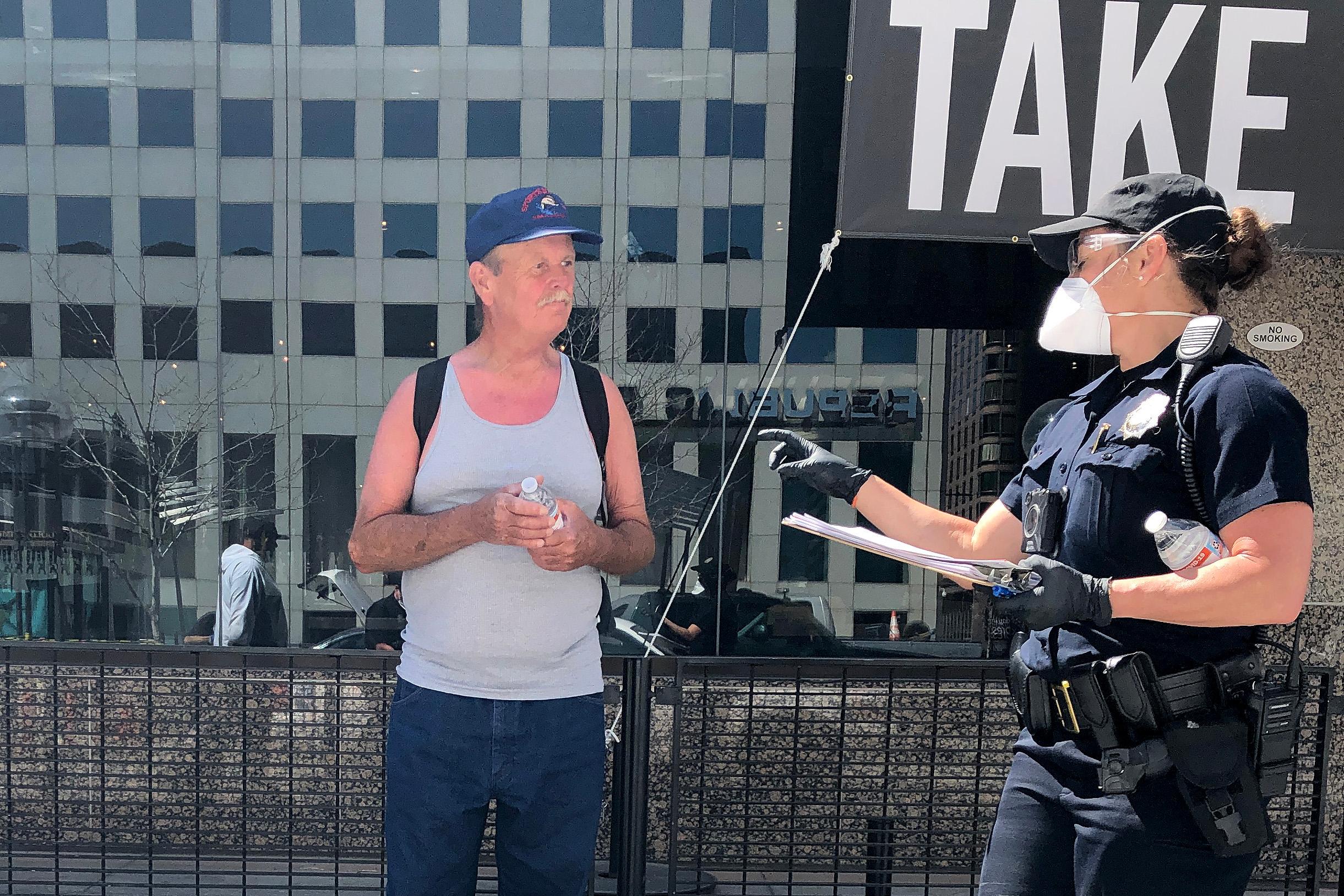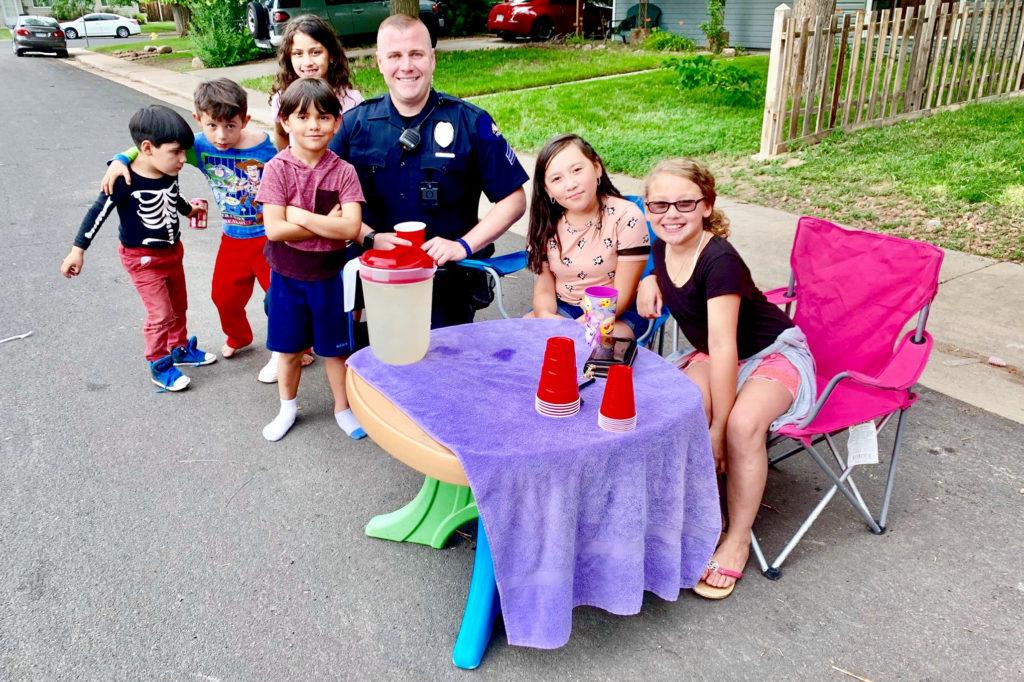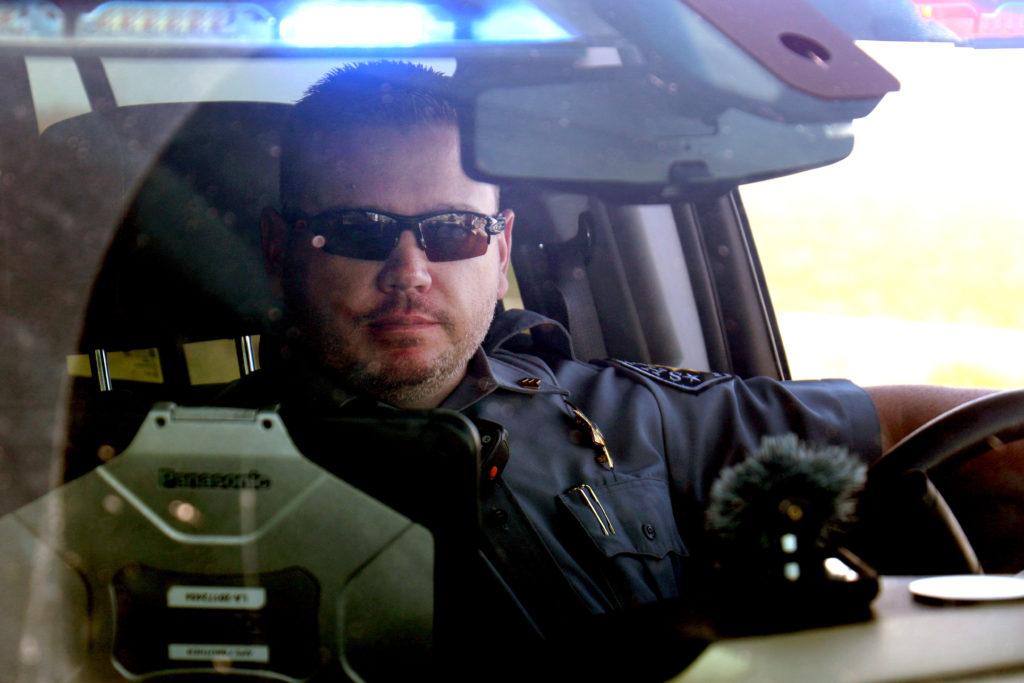
For Sgt. William Hummel, a shift at the Aurora Police Department is often a series of decisions about what risks to take.
Does he send an officer to an apartment building when someone complains of loud noises inside when that means exposing that officer to a deadly disease? How do officers handle unattended deaths? Car thefts?
“We’re talking about exposing officers and their families, we have officers taking care of their parents, their kids, their wives, their pregnant wives, their husbands, whatever,” Hummel said. “Really, is what we’re responding to worth it? Is there another way of handling this?”
Across the state, law enforcement agencies have quietly tweaked how they go about their jobs as first-responders.
They’re donning personal protective equipment before heading into the most routine situations, like domestic disturbances or traffic stops. They’re canceling calls that could be handled another way. More work is now done on the phone and in the patrol car.

In Aurora, for example, car thefts are often handled on the phone. In Colorado Springs, detectives are working from home and officers are filling out reports from their cars instead of substations. The formerly most mundane calls, like unattended deaths or the guy who has shortness of breath, are now downright terrifying to respond to.
“We’re just human and we’re trying to deal with it too,” said Sgt. Shawn Peterson, who works graveyard shifts at the Colorado Springs Police Department.
Peterson recently responded to an unknown death in a hotel room that gave him the chills.
“We’re doing the investigation the best we can but in the back in your mind, that’s what you’re thinking the whole time,” he said. “I’m suited up, we don’t know how this guy died, he’s not that old, I’m not seeing any immediate signs, you’re thinking, is it possible? Is this something we could be bringing home to our families?”
Generally speaking, police work has been slower than usual since the start of March. Statewide crime statistics aren’t yet available, but anecdotally, agencies report most crime is down — except auto thefts and domestic violence. Jury trials across the state are also suspended, which means not reporting to a court to testify on cases.
That doesn’t mean people still don’t call the cops and ask for help. And officers are grappling with the fact their jobs have fundamentally changed.
Teresa Gillian at the Denver Police Department works as a community resource officer in district six, which includes downtown. She routinely works with the homeless and has forged relationships there and trust. But in this new world, Gillian has to talk to them through masks and goggles.
“You lose a lot of the personal side of it,” Gillian said, noting that the department recently tried to do some homeless outreach and she didn’t sleep well the night before it started. “I knew if we were careful we’d be OK, but there’s always the opportunity that something happens … there is that potential that we’re putting each other in harm’s way. It was a little bit stressful.”

Sgt. Peterson at the Colorado Springs Police Department agreed.
“If someone is losing a loved one and they needed a hug or a small touch, you’d do that. Or kids, kids often want to hug you,” he said. “Now you’re much more reluctant.”
Peterson recently took a woman to jail on a domestic violence incident. He said she had a panic attack in the back of the police car about contracting COVID-19 in the jail. An officer gave her one of his cloth masks.
“I never put myself in those shoes,” he said.
Sgt. Kris Haffner at the Weld County Sheriff's Office said his job has grown “eerily quiet” since the stay-at-home order. Calls for service are down and often there isn’t enough for everyone to do.
“I may have six or seven guys available just sitting on the highways showing their presence, but not necessarily attached to calls or not having calls coming in,” Haffner said. “And then throwing on all this protective equipment just to talk to someone about some problem they’re having. It’s strange.”
Haffner said he helped respond to a 3-year-old who was having trouble breathing a couple of weeks ago.
“Turns out it was just a reaction to some food, however, those symptoms, right?” he said. “With cops being in close proximity, obviously our job is to protect and serve … We’re putting on the gloves, we’re putting on the mask, but you really don’t know.”








